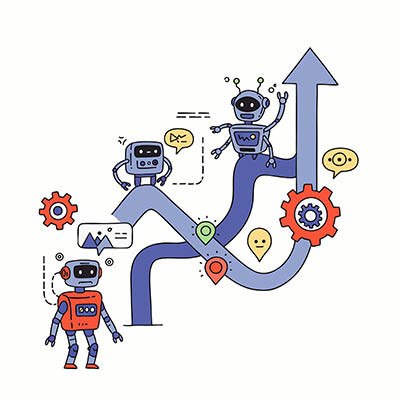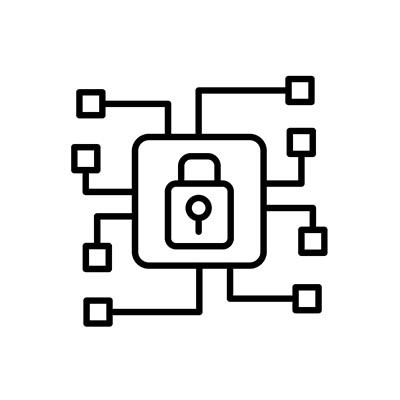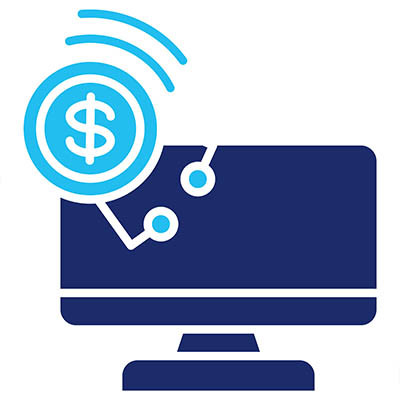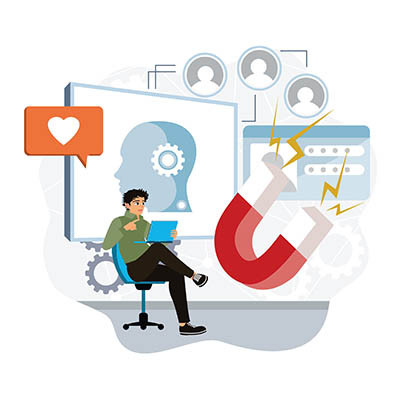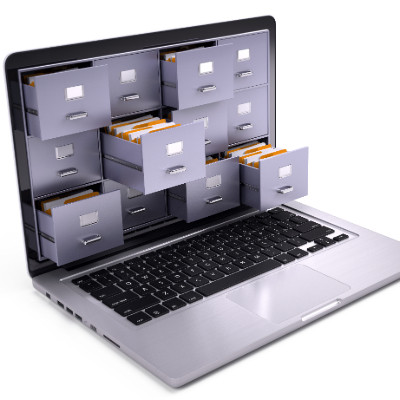For most businesses, integrating artificial intelligence isn't just about picking the right software; it’s about doing what you can to properly feed the beast. AI runs on data, and if that data is a chaotic mess, your expensive tools will be trying to solve a puzzle with half the pieces missing and the other half upside down.
Fatech IT Advisors Blog
Cybersecurity is a topic near and dear to most business owners’ hearts. You might not specialize in securing your infrastructure, but it’s still a vital factor that cannot be ignored. Today, we want to cover how you can make cybersecurity as easy as possible for your team so they don’t accidentally put your business at risk.
Imagine finalizing a high-stakes client proposal, only to realize—seconds before the ink dries—that your AI assistant generously included a 50 percent discount on your most profitable service.
It sounds like a corporate fever dream, but in the world of unmanaged AI, it is a very real possibility. While artificial intelligence is a powerhouse for productivity, it is only an asset if there is a human at the wheel. Without a sanity check, AI can quickly transition from a helpful tool to a liability.
The AI honeymoon phase is officially over. In 2026, the question isn’t whether your business is using AI, it’s whether you’ve handed it the keys to the building without a background check. As IT providers, we’re seeing a surge in emergency room calls from companies that treated AI as a set-it-and-forget-it miracle. To keep your organization from becoming a cautionary tale, you need to stop trusting the machine blindly and start managing it strategically.
We’d be the first to admit it: my team and I put a lot of emphasis on security.
That said, we’d argue that this emphasis is completely warranted, especially considering how intent modern cybercriminals are to accomplish their goals. It’s gotten to the point where you really can’t trust anyone… not even the people you’ve hired to work for your business. It’s an unfortunately necessary mindset that today’s business owners must adopt.
This is why establishing zero-trust security standards is so critical.
Let me ask you something: say you had promised to protect someone, keeping them safe and healthy. Would you want them to actively partake in risky—and in many cases, completely avoidable—situations? Of course not. So, why would a business’ insurance provider want to provide coverage if that business did nothing to prevent a cybersecurity event?
They wouldn’t… and as a result, many providers are establishing minimum safeguards and compliance requirements to help protect themselves. Let’s go over what these safeguards are so that your safety nets will be there when you need them.
You’ve likely felt it: that uncanny sense that your phone is eavesdropping or that the Internet is feeding you exactly what you love and everything you hate. We call it the Algorithm; the thing that decides what we see, who we talk to, and what we believe.
The algorithm isn't a single entity; it’s a hyper-focused, data-driven librarian with one specific goal: to keep you engaged longer and longer so the company can make more money. By treating your attention as a currency, platforms have built sophisticated engines that don’t just show you content; they predict your future behavior. Here is how the world’s biggest digital companies are shaping your worldview.
How productive are your employees, really? You want your investments in people and resources to yield results, but if those results aren’t visible, either because they don’t exist or because it’s so slow that it might as well not be there, then you have a real problem on your hands. Today, we’re discussing how you can use productivity to measure efficiency and how you can overcome the struggle of not being where you want to be.
Have you ever thought about why your home Wi-Fi is fantastic in one spot but completely vanishes in another? You might have paid for the fastest internet package and own a brand-new router, yet you still deal with frustrating dead zones and slow connections. It turns out that one of the most crucial elements affecting your speed isn't your internet company or the router itself; it's simply where you decide to place the device.
With over $101 million in jewelry stolen, the recent Louvre heist was a costly success for criminals. However, French publications suggest the thieves may have encountered less resistance than an organization of the museum's stature should provide, thanks to a documented history of severe cybersecurity vulnerabilities.
This history offers a crucial lesson for all businesses: Foundational security flaws can undermine even the most complex physical protections. Let's examine the documented oversights and what they imply about the museum's current security posture.
If you’ve played with AI for any purpose, but particularly for your business’ benefit, you may have found your results less than impressive. One of the biggest challenges of working with artificial intelligence is our assumption that our instructions are sufficient, even when they are vague or non-specific.
A prompt of this caliber will not produce the quality responses that you need. Instead, you need to use “prompt engineering” to come up with a request that will. Fortunately, you can improve your prompts considerably by simply remembering three things.
Updates are critical for the continued utility and security of any computer system or program. That said, updates aren’t always perfect. It’s possible that even a routine update could sideline your critical applications. If this happens, you’re dealing with downtime and failing to serve your customers… all because you were trying to do the right thing and maintain your technology.
Make no mistake: updates are crucial, so to make sure they don’t disrupt your business, they need to be approached with strategy and discipline.
Having trouble diagnosing issues with your computer? It could be the operating system, or it could be a piece of software you installed on it, OR it could be a driver or another peripheral connected to it. How do you know what the issue is, and how do you address it? That’s where Safe Mode comes in; you can boot your operating system in its most basic form, allowing your managed service provider to more easily determine the problem.
Having a backup is always a smart idea, but it is essential to remember that there are different levels of backup that a business can implement. It’s one thing to be protected against a server crash; it’s quite another to be protected against a disaster that destroys your servers, as well as those of every business within a five-block radius. While local backups serve a purpose, they cannot be the only thing you rely on. Real resilience means looking elsewhere to achieve redundancy.
Even though it’s incredibly helpful, technology can be frustrating—sometimes to an absurd degree. Businesses can’t function without it, so they have to learn to live with it, but it doesn’t have to be hard. You can develop some habits by using these tricks to reduce some of the friction in your workday.
Business owners have a lot going on in their workday, and with so many duties and responsibilities, adding technology troubles to the mix only makes it all the more frustrating when your IT doesn’t work the way it should. That said, you cannot let the laissez-faire attitude prevail. In fact, lazy IT practices can make real problems significantly worse.
Is your business still gazing at the cloud from afar, wondering if it’s truly the promised land of IT efficiency? For many organizations, a move to the cloud for mission-critical operations can be complicated. Hesitation, while understandable, can be the biggest drain on your future potential. Let’s go through why those cloud migration worries might just be myths in disguise, and how we can help you shift into high gear.
Think of your business information that includes customer details, sales figures, product lists and more. All of that data is stored in your business’ databases. As a result, you need to understand how they work and what you need to do to best manage them and the data they contain.
Here at Fatech IT Advisors, we help businesses in Northern Virginia, Southern Maryland and the District of Columbia (DMV) make sense of their technology every day. We’ve noticed folks often have similar questions about databases, so let's clear them up with some simple answers. Did you know, by the way, that the first "databases" were essentially just well-organized paper records? We've come a long way!
Cybersecurity solutions are all well and fine, but your team also plays a significant role in keeping your business safe. You need to acknowledge they are a potential threat and take steps to prepare them for the bevy of threats they’ll face. Today, we want to discuss why your employees are a cybersecurity threat and what you can do to mitigate it.
Being overwhelmed can happen to everyone, even the hardest workers you know. If you’re not careful, the weight of your agenda could drag you down and create more problems than it solves. While you could power through, this is usually counterproductive, and you’d be better served by taking a moment to step back, breathe, and perform a micro-reset.



